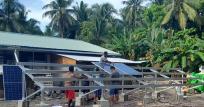
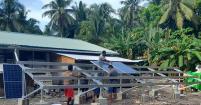
Renewable-based Pathway Key to Palau’s Welfare
Newsletter
Photo Credit: Palau Ministry of Education
Like many Small Island Developing States (SIDS), Palau is highly dependent on imported fossil fuels. Renewable energy generation is only 4.03 percent of the total share of its power sector. The country, however, is striving to increase this share. A new report by the International Renewable Energy Agency (IRENA) explains how the country can achieve its target of 100 percent renewables by 2050 through increased deployment of renewables.
IRENA, working with the government, has developed Republic of Palau: Renewable Energy Roadmap 2022-2050 outlining an ambitious, yet achievable scenario enabling the country’s share of renewable energy to significantly increase, up to 92.1 percent. The study also shows that Palau can achieve 100 percent renewables by exploring green hydrogen production from solar photovoltaics (PV) and wind.
Palau has a promising potential for solar and wind energy deployment. The IRENA roadmap recommends the deployment of an additional 190 MW of solar energy and 20 MW of wind energy to achieve the country’s renewables goals. An estimated 412 megawatt-hour of battery storage and 41 megawatt of battery inverters would be needed to support the transformed power system.
“My house is the only one that stays bright”
An energy system based on renewable energy is not just helping Palau meet its climate goals, but also improving the lives of local communities. Those who embraced renewable energy can already testify to its positive impact.
Kyle Ongesii, a proud owner of an off-grid solar system in Aimeliik State shared that the solar-powered system has significantly reduced his household’s expenses. “With the solar energy, I no longer have to worry about electricity bills. Also, whenever a power outage turns the village dark, my house is the only one that stays bright,” he says.
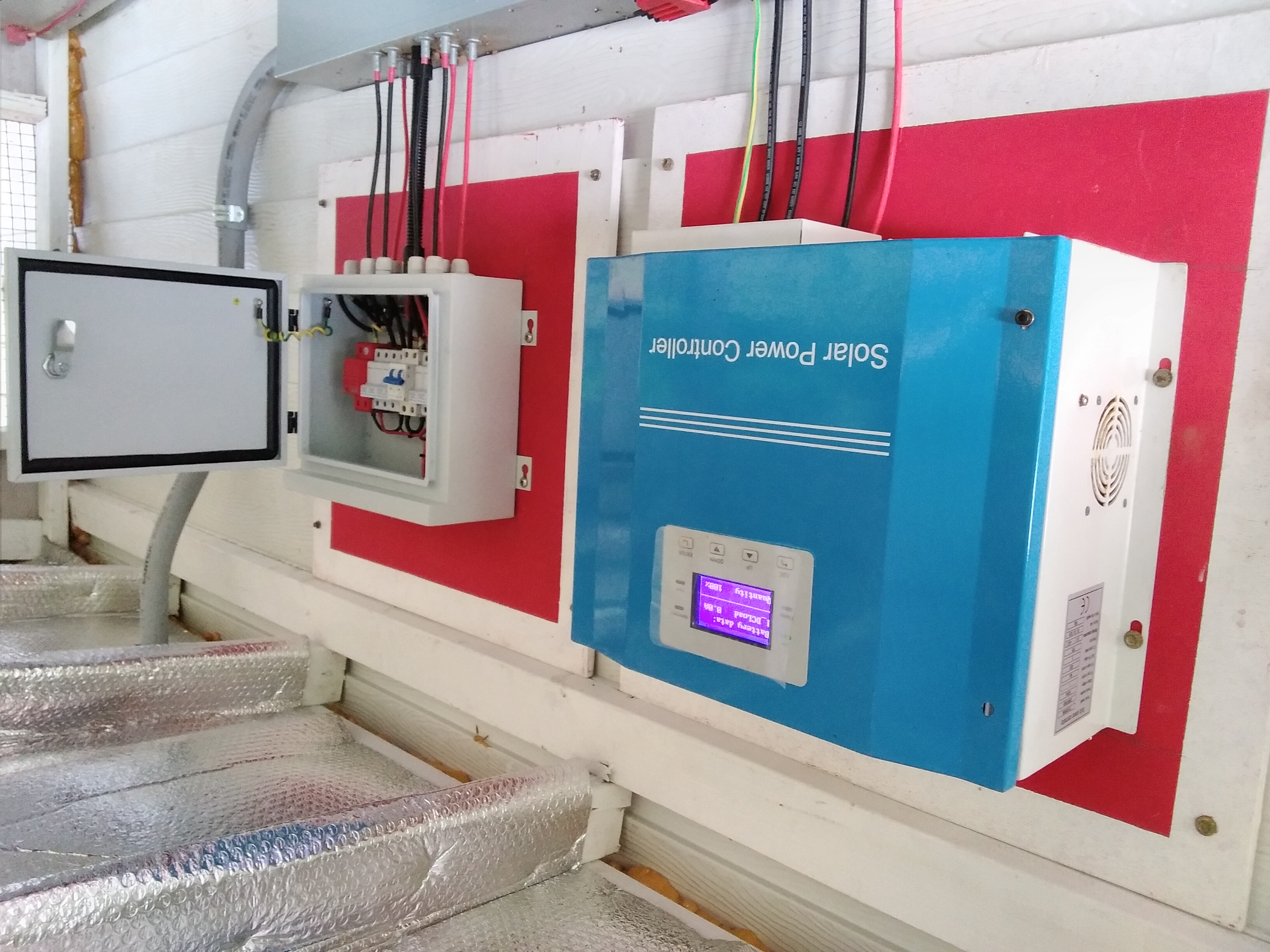
Photo Credit: Kyle Ongesii
“The 10-kilowatt system more than meets my household’s needs. The excess electricity kept powering my house during a typhoon last year when there was no sunlight for four days. I cannot recommend this system enough, so my neighbours can also benefit from it.”
In other parts of Palau, three remote island schools are also enjoying the benefits of renewable energy. With the support of the United Nations Development Programme Pacific Office in Fiji, and the Japan funded Enhancing Disaster and Climate Resilience project, a number of 5-kiloWatt solar power systems were installed in the schools last year.
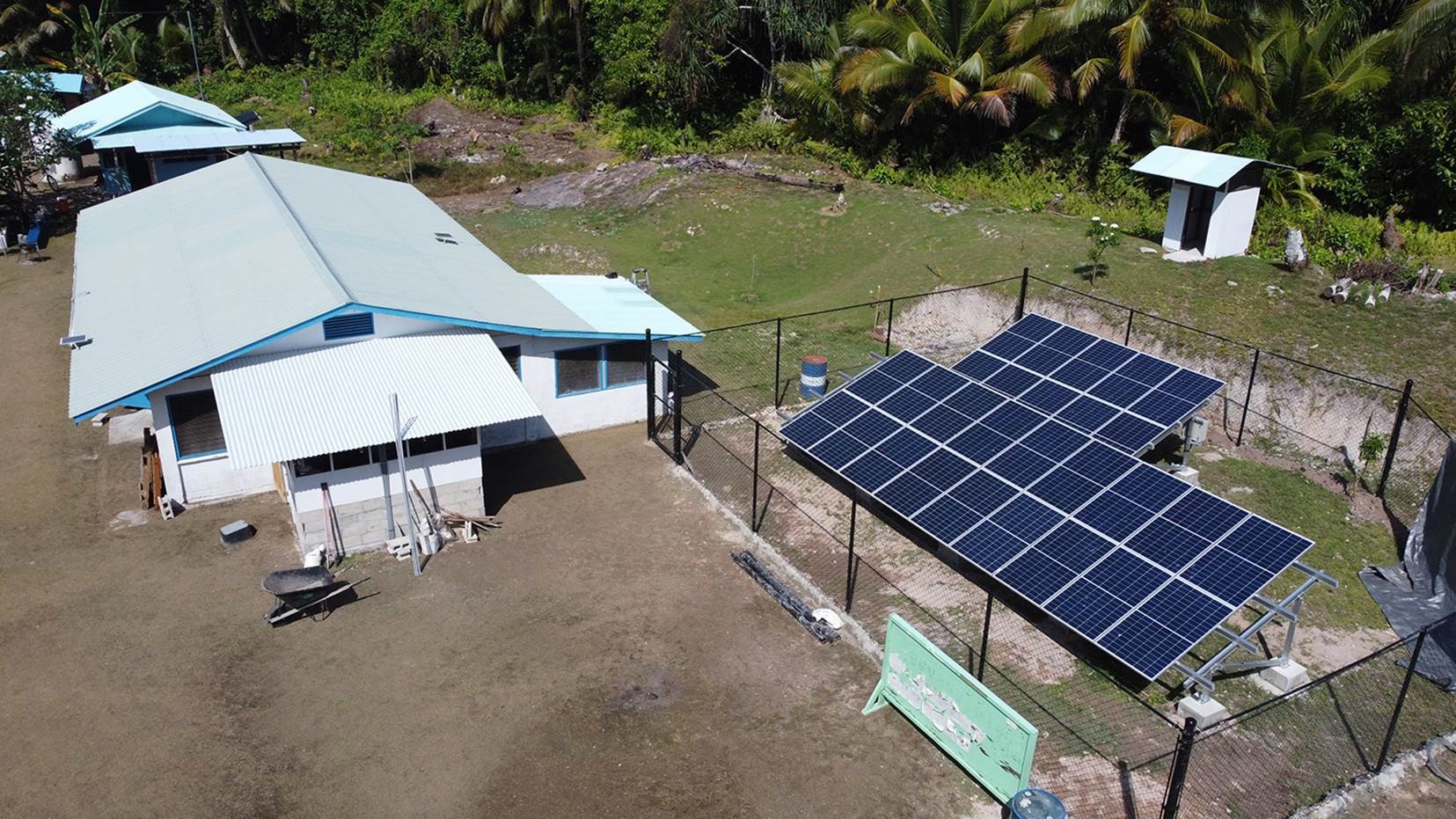
Photo Credit: Palau Ministry of Education
The students and teachers of the elementary schools in the remote southwestern islands of Hatohobei, Pulo Anna and Sonsorol immediately saw the positive change after the installation of the solar systems.
Laptops, projectors and movie nights
Delphina Sumor, the head teacher at Pulo Anna elementary school, said, “Both students and teachers are very happy with the long-running electricity, thanks to the solar power; we can turn on electric fans when the days are hot, and turn on the lights in the classroom when it is dark outside because of the rain.”
“We have also enhanced our learning experience. With the stable electricity, students can use digital devices to perform classroom activities, while teachers can use their laptops and projectors to support instructional delivery. But the most exciting of all for the students and the wider community, is the electricity allows us to have movie nights on weekends,” she added.
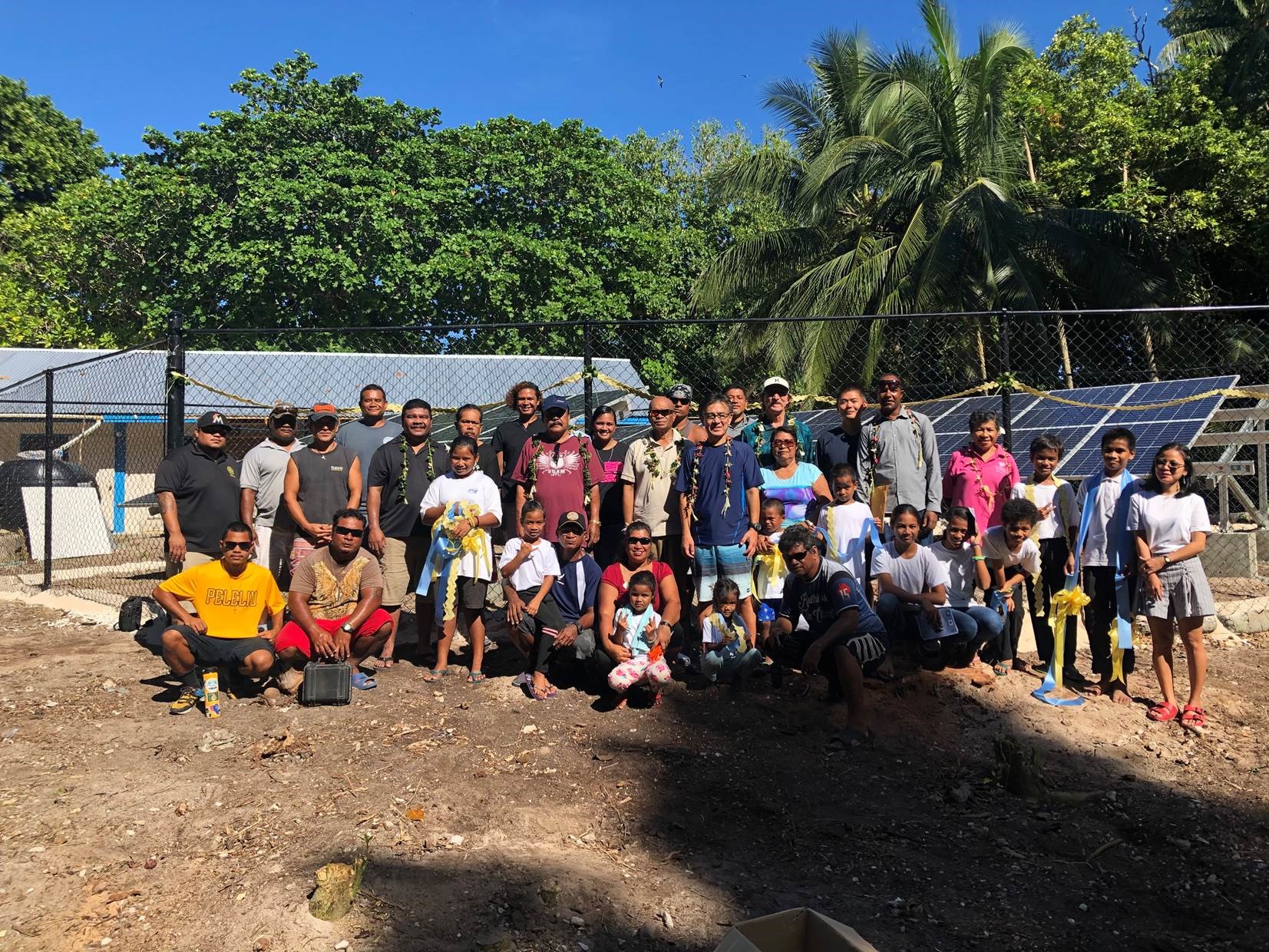
Photo Credit: Palau Ministry of Education
These benefits are evident in addition to the pollution and greenhouse gas emissions reduction, as well as lower electricity costs. Further deployment of renewables can aid Palau in meeting its climate goals. The country has developed an energy action plan to achieve the energy goals set forth in its climate policy. However, owing to its low per-capita income, the country needs financial and technical assistance from the international community to fully implement renewable projects.
The Roadmap indicates an initial investment of approximately USD 126 million to support the scaling up of solar PV, wind and battery capacity necessary to reach a 92 percent share for renewables. It also identifies a suitable mix of financing mechanisms including grants, soft loans, and de-risked investments by independent power producers to help Palau decarbonise its power sector and lessen the negative impacts of climate change.
Read the Republic of Palau: Renewable Energy Roadmap 2022-2050 here.




